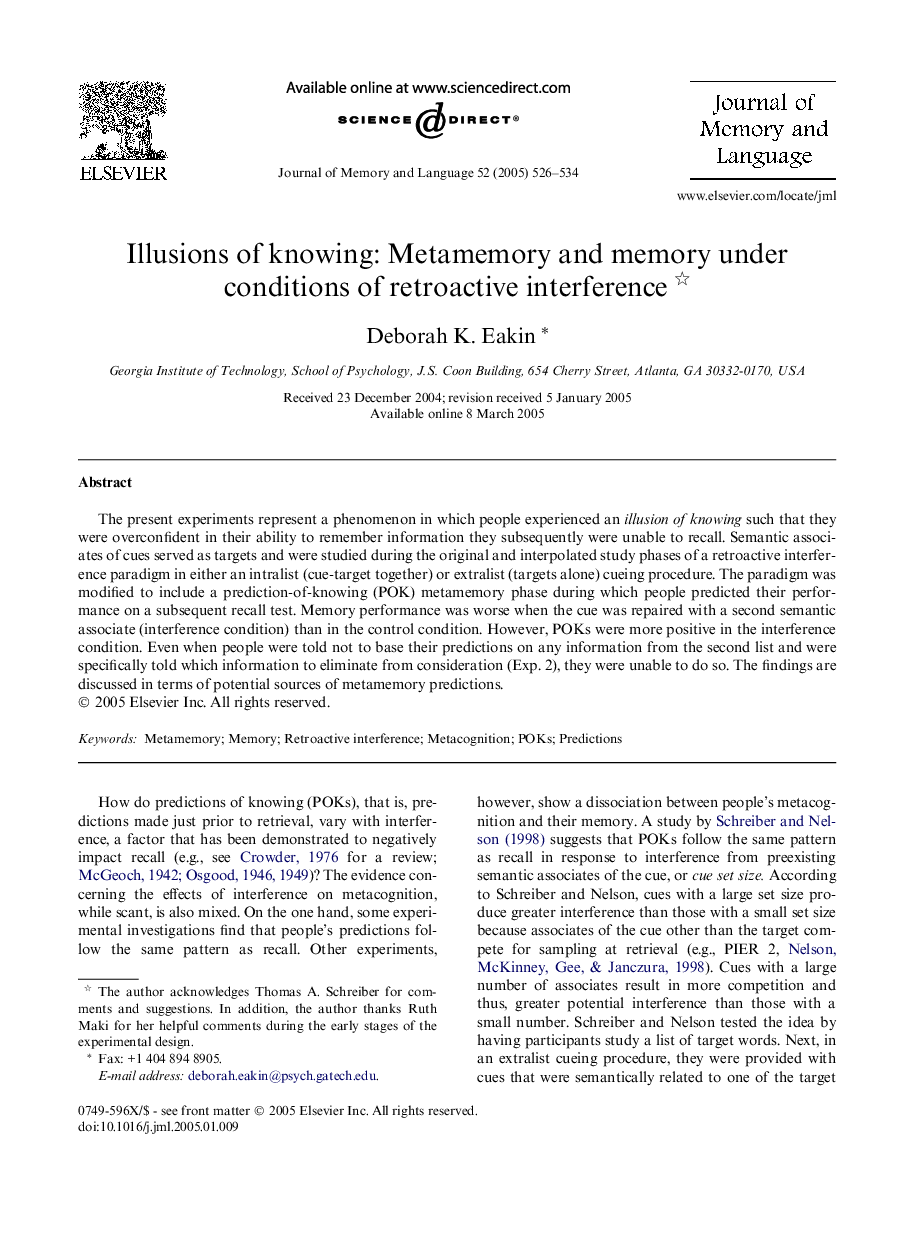| Article ID | Journal | Published Year | Pages | File Type |
|---|---|---|---|---|
| 10459870 | Journal of Memory and Language | 2005 | 9 Pages |
Abstract
The present experiments represent a phenomenon in which people experienced an illusion of knowing such that they were overconfident in their ability to remember information they subsequently were unable to recall. Semantic associates of cues served as targets and were studied during the original and interpolated study phases of a retroactive interference paradigm in either an intralist (cue-target together) or extralist (targets alone) cueing procedure. The paradigm was modified to include a prediction-of-knowing (POK) metamemory phase during which people predicted their performance on a subsequent recall test. Memory performance was worse when the cue was repaired with a second semantic associate (interference condition) than in the control condition. However, POKs were more positive in the interference condition. Even when people were told not to base their predictions on any information from the second list and were specifically told which information to eliminate from consideration (Exp. 2), they were unable to do so. The findings are discussed in terms of potential sources of metamemory predictions.
Related Topics
Life Sciences
Neuroscience
Cognitive Neuroscience
Authors
Deborah K. Eakin,
